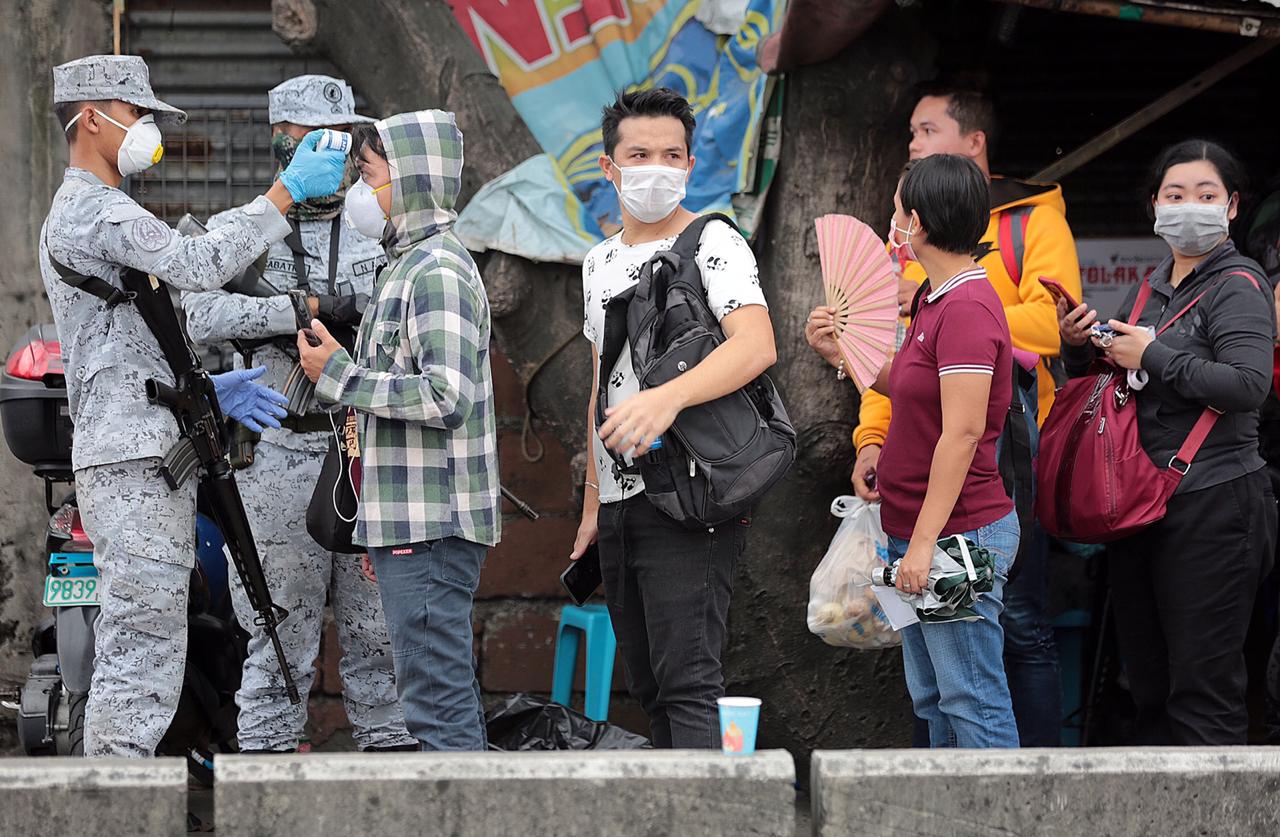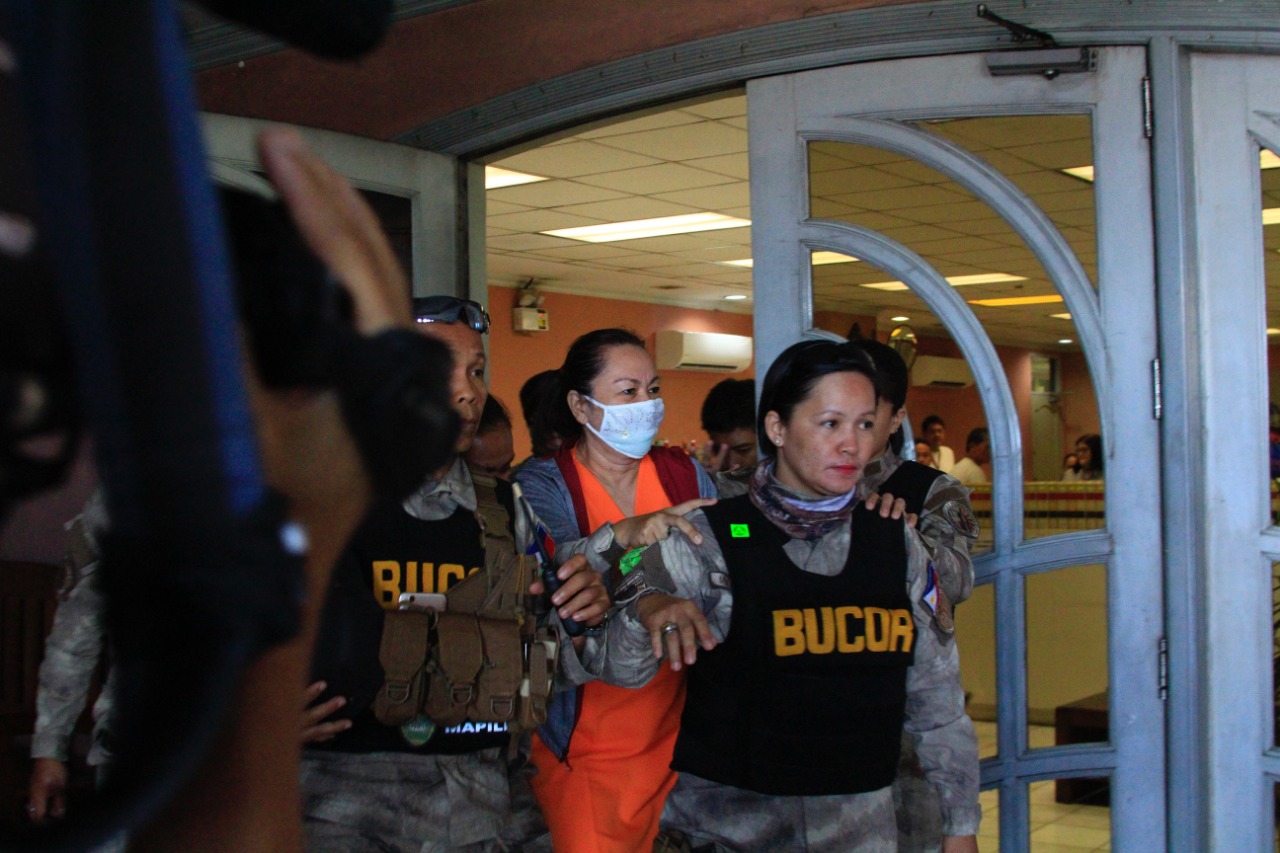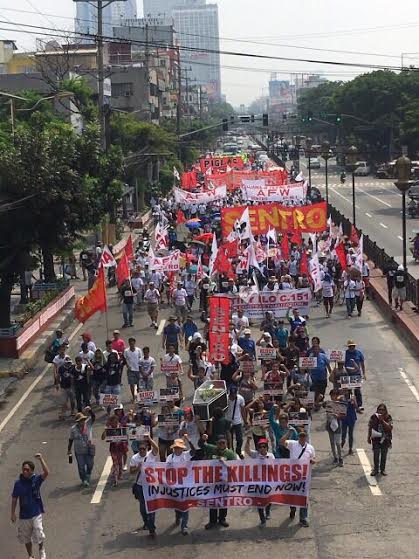A woman in the comfort of her house screams at her flat screen television while practicing yoga. She is angry at the masses for going to work during a state of calamity. The fact that the very people she is exasperated with are the same people who are the backbone of society—drivers, food service workers, cashiers, janitors and healthcare workers—completely eludes her attention.
More people sitting in their homes with eyes attached to illuminated screens echo the same opinion. Why are people going out when a pandemic is spreading? Why can’t they just follow the government and stay in their houses? To them, there must be something blatantly wrong with the people on the streets, right? They publish their opinions adamantly for the public to read and watch, confident that they are speaking gospel.

The tables turn when they receive backlash and the bubble bursts. Their gospel is met by the anger of the masses because in the Philippines, there has always been a lingering discord between the rich and the rest.
Privilege is undoubtedly a buzz word many millennials have come to use. Rightfully so, as it’s a word that encapsulates a rampage of meaning, charged with connotations of history, class struggle, gender bias, social inequality and economic imbalances. Privilege, according to the dictionary, is a “special right, advantage, or immunity granted or available only to a particular person or group.” This exact meaning is where social privilege comes from—when a person has significant advantages over another, they have a benefit that is eventually a factor of another’s detriment.
Privilege, according to the dictionary, is a “special right, advantage, or immunity granted or available only to a particular person or group.”
A person may be born into privilege, like those who have parents with thousands of money while others may have become privileged in the wake of their career. Both have a certain advantage over others, however they are vulnerable to a kind of sickness: the luxury of being rendered blind towards reality.
The Philippines’ privileged
The country is a land of extremes. On one side are the people buying designer apparel by the week, some travel internationally as an act of spontaneity, while on the other end are the ones who are picking the last grains of rice on their plate to just feel satisfied with a meal, ones who have to work in the blistering heat daily to earn what the other side can earn in a matter of minutes.
When I say the rich and the rest, it truly is because the majority of the country has had its eyes open to the full spectrum. Those in the middle have seen and felt the struggle of the lower class, while those who are rich are completely comfortable in their bubble.
The reason they may be so adhered to this blindness to the masses may be because the Philippines as a land itself is burgeoning with societal differences. In the book “Lungsod Iskwater” by Benvenuto Icamina and Paulo Alcazaren, they center on the country’s proliferation of “gillages”, a portmanteau of the words gilid and villages, which pertains to the informal settlements found beside gated communities.
Around exclusive villages and high-rise buildings, there will always be a poor community nearby leaving in the fragile houses of slums and squatter areas. Looking out windows of the rich, these informal settlers may be completely blocked from their view which is why they remain unaware of their lives or they may come to believe that the people who live there are dirty, criminals and other lowly incriminations.
An access to social media also comes into play. Algorithms online cater to what you, the user, is interested in, not in what’s actually happening to the rest of the world. So while you may be frantically reading about a celebrity breakup, a violent rally for contractual workers’ rights could be happening just around the corner. What we are adept at witnessing online pulls a veil on the realities of society, and the contented privileged are left swimming in ignorant bliss.

The country’s history of corruption also plays a part. In fact, the full-on economic system of the country could be at fault. Because there is such a wide and continuously expanding gap between the rich and the poor, the poor are ousted. Against the thriving progress of cities like Bonifacio Global City and Rockwell, the sight of the poor is considered an eyesore. Honestly, we see it in the government’s anti-poor movements: the extrajudicial killings that happen in poor communities, the rise of prices for goods and services and the unjust contractualization in the labor sector.
The reason the rich find it hard to look past their privilege is because they live in a system that favors them first and foremost, but this should not give them a blindfold over reality.
Meritocracy check
“When you are not hungry for justice, then you must be full with privilege.” This is a quote I’ve seen numerous times on social media. The worst thing about having privilege is that it can render a societal problem invisible in the eyes of a privileged person. If it does not concern them, then it shouldn’t be a problem.
The notion of “hard work” implies that the payoff is commensurate to labor, when we’ve seen many hard-working folk in blue-collar jobs breaking their backs for little pay.
A study by Pia Dietz and Eric Knowles, researchers for “The Economic Times,” reported how social class differences influence the process of information, revealing that wealth can cloud moral judgment.
The researchers conflated their sense of entitlement with the false notion of meritocracy. The wealthy credit their success to hard work and education, often advising the less privileged to do the same. But, as anyone with Instagram and access to social justice accounts has seen, privilege is a result of enduring class systems. This inequity directly impacts access to education and white-collar occupations. The notion of “hard work” implies that the payoff is commensurate to labor, when we’ve seen many hard-working folk in blue-collar jobs breaking their backs for little pay.
All for one
The upper class isn’t alone here. Many members of the middle class, in our air-conditioned wifi-equipped apartments, are often blinded by our own privilege. We complain about our job without acknowledging how blessed we are to actually have one. Part of the process is acknowledging our advantages. In order to actually “check our privilege” we must stay educated, aware and engage in sociopolitical discourse.

In dire times like these, when everybody is told to stay indoors, one thing quickly becomes apparent: who is blinded by privilege.
The libra scale makes a telling tilt towards the class favored by public policy,leaving the marginalized clawing for access to the lowest rung of Maslow’s hierarchy. The privileged have always had a special place on top of the ladder.
And this wealth disparity between the ultra, ultra rich—the top 1 percent of the 1 percent—and the rest of humanity proves that, if willing, they have the fiscal power to end poverty. Now, as billionaires serve handouts to the poor and the privileged receive their much-delayed wake-up call, we applaud the bare minimum.
The government-mandated quarantine amplified what was there all along—the extraordinary suffering of the underclass, suddenly made apparent to a privileged minority.
Taking responsibility
Addressing privilege is simple. It requires a radical act of empathy. Start by understanding the needs of others, even if those needs aren’t within the bounds of your lived experience. When contractual workers take to the streets to rally for their rights, understand their hardships and support their cause. It’s the least we can do to help alleviate their struggle. Employ that same empathy when street vendors, drivers and other blue-collar workers insist on working despite the virus’ threat.
Acknowledge your privilege, then with that same privilege and ask yourself: What can I do to help others?
Be willing to listen. Do not impose yourself without first knowing what role you need to take. Come from a place of humility and reach out to vulnerable sectors. Essentially, fundamental compassion comes from a place of learning and openness. When we are motivated by selflessness, we are rewarded with the courage to do more.
Get more stories like this by subscribing to our weekly newsletter here.
Read more:
Your perseverance as hope: A thank you to the frontliners in the fight against COVID-19
Duterte places Luzon on “enhanced community quarantine”: Here’s what it really means
The virus is a relentless sign for us to finally focus on the PH’s poor












































